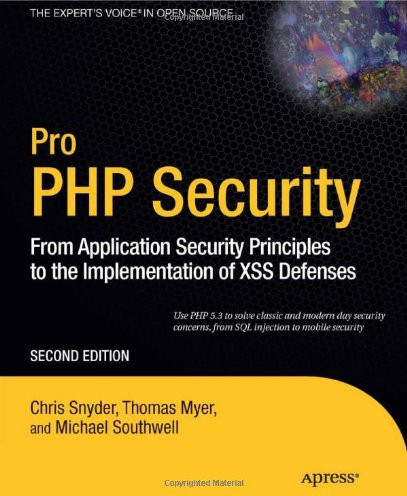

Most ebook files are in PDF format, so you can easily read them using various software such as Foxit Reader or directly on the Google Chrome browser.
Some ebook files are released by publishers in other formats such as .awz, .mobi, .epub, .fb2, etc. You may need to install specific software to read these formats on mobile/PC, such as Calibre.
Please read the tutorial at this link: https://ebookbell.com/faq
We offer FREE conversion to the popular formats you request; however, this may take some time. Therefore, right after payment, please email us, and we will try to provide the service as quickly as possible.
For some exceptional file formats or broken links (if any), please refrain from opening any disputes. Instead, email us first, and we will try to assist within a maximum of 6 hours.
EbookBell Team

4.7
86 reviewsPHP security, just like PHP itself, has advanced. Updated for PHP 5.3, the second edition of this authoritative PHP security book covers foundational PHP security topics like SQL injection, XSS, user authentication, and secure PHP development. Chris Snyder and Tom Myer also dive into recent developments like mobile security, the impact of Javascript, and the advantages of recent PHP hardening efforts.
Pro PHP Security, Second Edition will serve as your complete guide for taking defensive and proactive security measures within your PHP applications. Beginners in secure programming will find a lot of material on secure PHP development, the basics of encryption, secure protocols, as well as how to reconcile the demands of server side and web application security. What you'll learn * Secure PHP Development Principles * PHP Web Application Security * User and file security * Mobile Security * Encryption and Secure Protocols * Dealing with Javascript Who this book is for Pro PHP Security appeals to all intermediate and advanced PHP programmers who need to keep websites safe. It also contains material of interest to all who are concerned with web application security. Table of Contents * Why Is Secure Programming a Concern? * Validating and Sanitizing User Input * Preventing SQL Injection * Preventing Cross-Site Scripting * Preventing Remote Execution * Enforcing Security for Temporary Files * Preventing Session Hijacking * Securing REST Services * Using CAPTCHAs * User Authentication, Authorization, and Logging * Preventing Data Loss * Safe Execution of System and Remote Procedure Calls * Securing Unix * Securing Your Database * Using Encryption * Securing Network Connections: SSL and SSH * Final Recommendations
Chris Snyder is a software engineer at Fund for the City of New York, where he helps develop next-generation websites and services for nonprofit organizations. He is a member of the Executive Board of New York PHP, and has been looking for new ways to build scriptable, linked, multimedia content since he saw his first Hypercard stack in 1988.